On March 15, 2025 (Sat), from 10:00 to 18:00, the international conference “Creation, the World: Ends, Beginnings” was held at the Library Prof. Bogdan Bogdanov, Hall 1, at New Bulgarian University. The event was organized by four individuals: Boyan Manchev (New Bulgarian University), Darin Tenev (Sofia University), Yuji Nishiyama (Tokyo Metropolitan University), and Futoshi Hoshino (The University of Tokyo). The conference was hosted by New Bulgarian University, with partnerships from The University of Tokyo, Tokyo Metropolitan University, and the Sofia Ontology Seminar between New Bulgarian University and Sofia University.
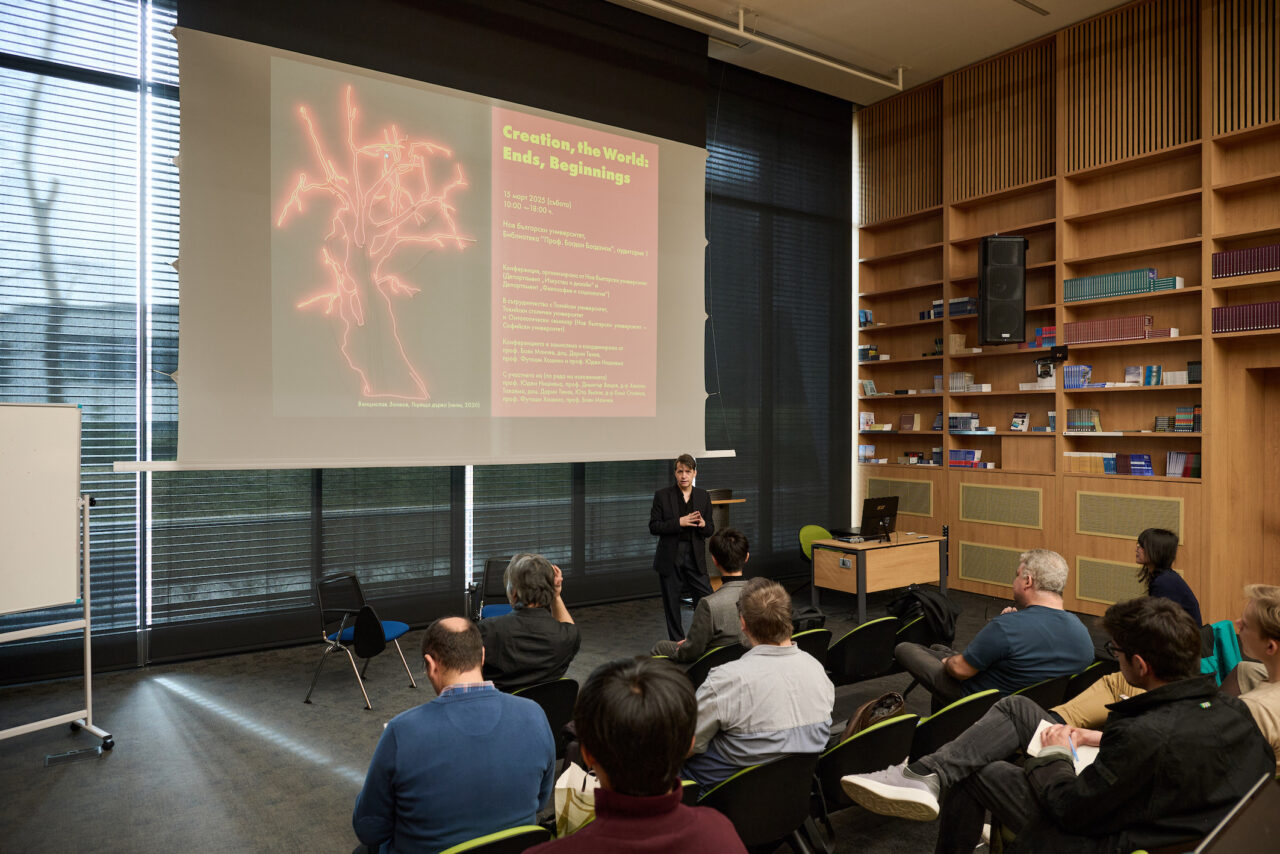
Since the first visit to Sofia initiated by Yasuo Kobayashi (UTCP) in the fall of 2013, academic exchanges between the two countries have continued intermittently, both in Sofia and Tokyo. However, this was the first joint event with multiple participants since the onset of COVID-19, marking a six-year break. In the opening remarks, each of the four organizers expressed their joy at the reunion of exchanges and their thoughts for the future.
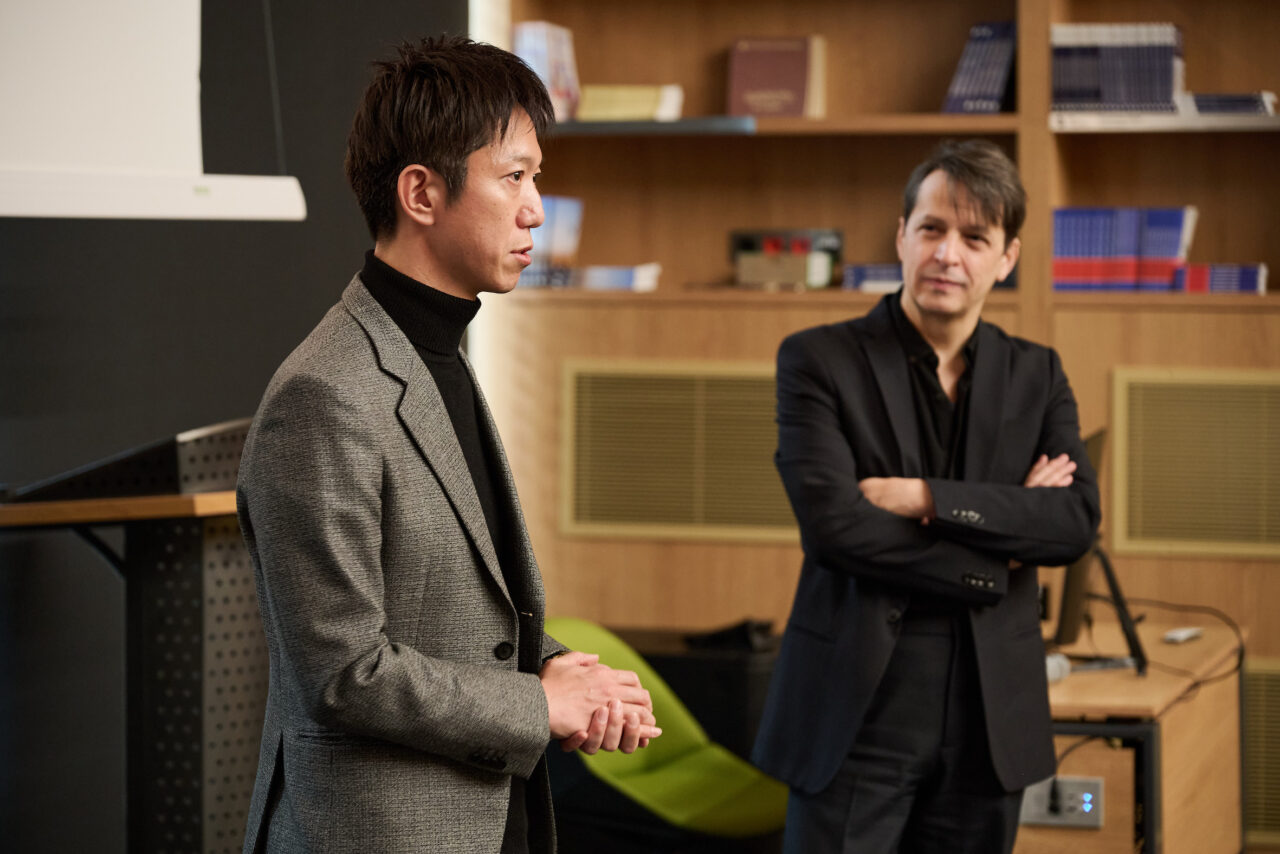
The moderator for the morning session was Professor Manchev. The first presenter, Professor Nishiyama, titled his talk “The Creative and Sinister Power of Lying: The Philosophy and Politics of Falsehood.” Beginning with the song “Zutto Uso Datta: A Requiem for the Victims” by Kazuyoshi Saito, released after the 3/11 disaster, he explored the nature of political lies throughout history. Drawing on philosophical figures such as Derrida, Montaigne, and Augustine, he examined how trust in humanity can be restored, the appropriate balance between secrecy and disclosure in democracy, and how falsehoods and archives can shape the future, a theme resonating deeply with the current world.
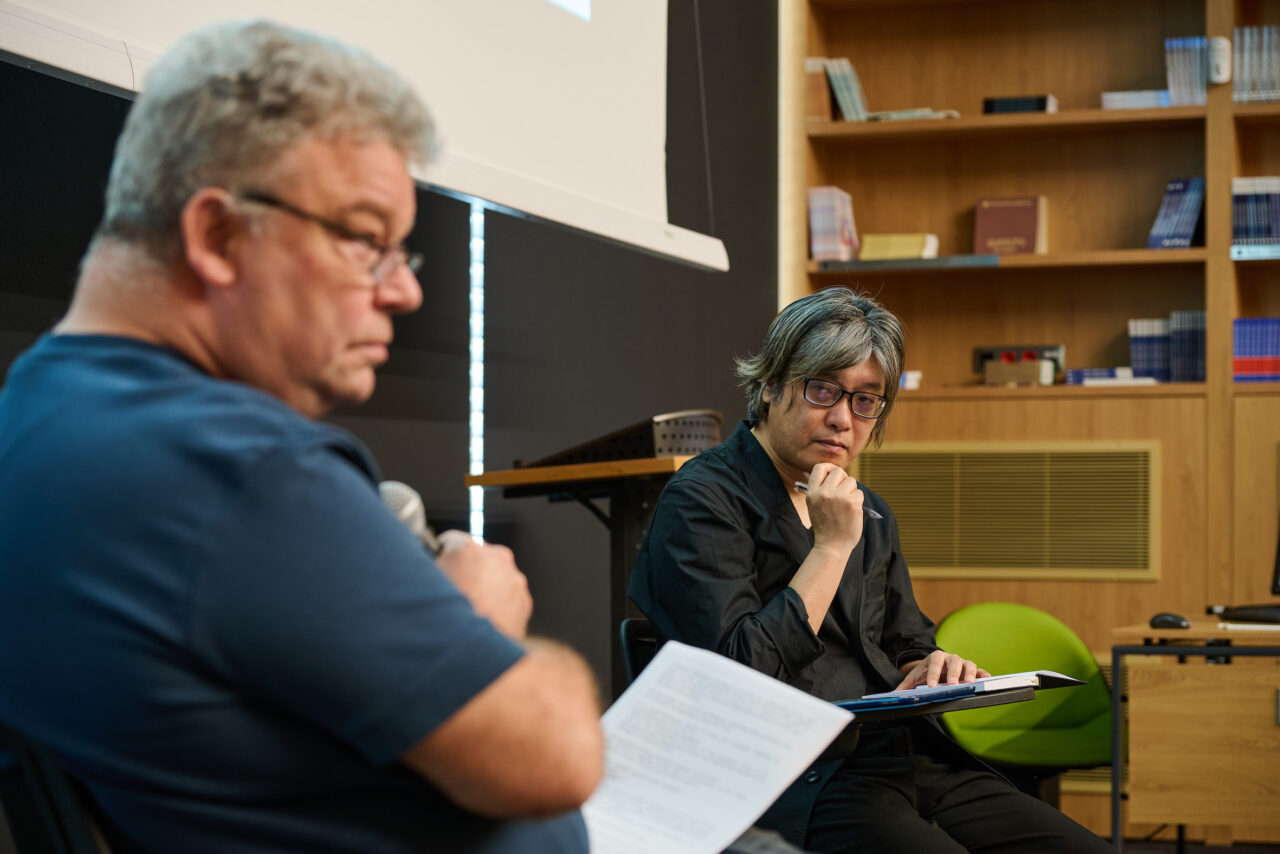
Next, my presentation, titled “Aspiration towards Futures, or the Affirmation of Chaos and Transgression,” focused on extracting the system of subjugation from Lanciell’s reading of Chekhov, while also considering the escape from the immutable through the concepts of chaos by Blanchot, Clémence Ramnoux, and Gilles Deleuze. I questioned how one could pursue an alternative existence to obedience to established systems and order, suggesting the potential of storytelling that differs from conspiracy theories or the pursuit of truth.
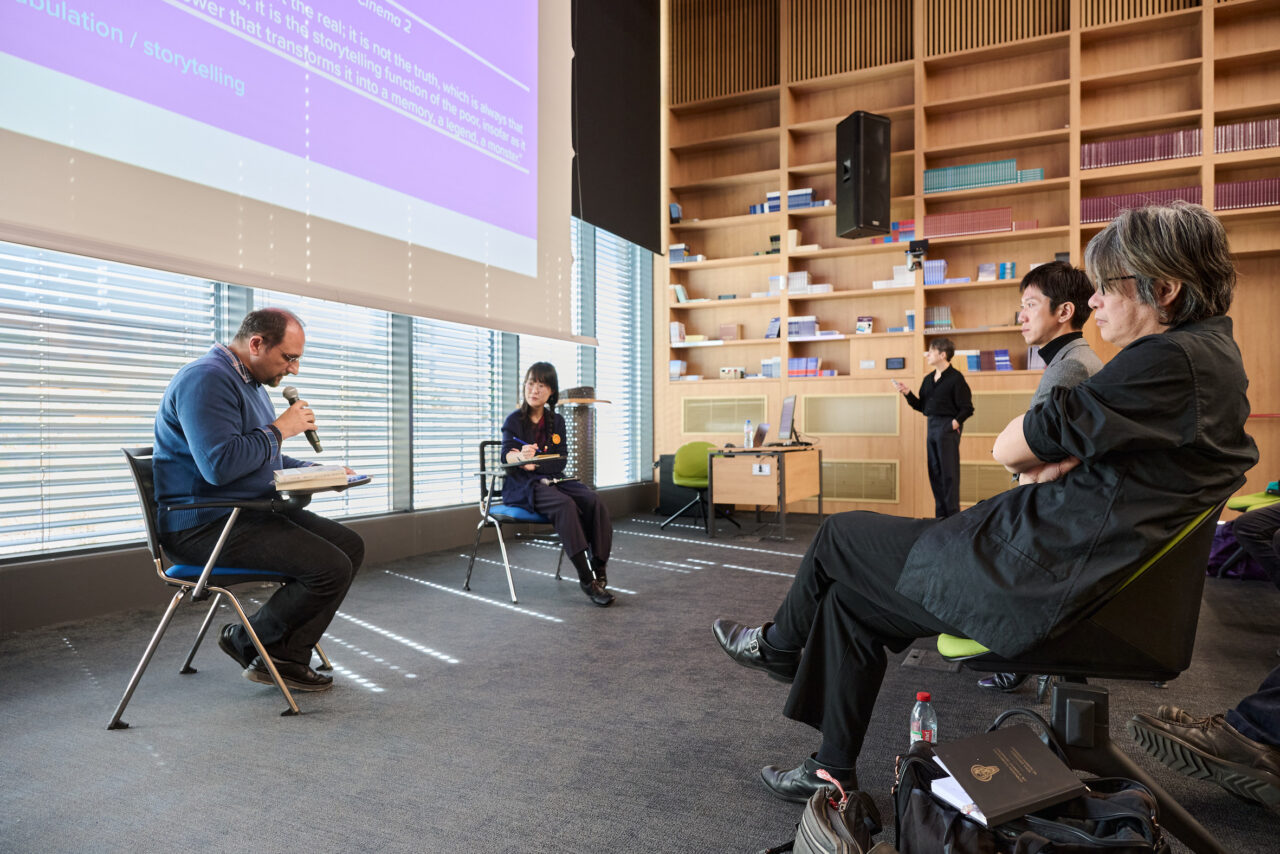
After the lunch break, the afternoon session was moderated by Professor Tenev. The third presenter, Mr. Yuto Yamane (University of Tokyo), titled his talk “Jean-Luc Nancy and the Spectacular Ontology of Being-With,” focusing on Nancy’s concept of “spectacle.” Referring to Nancy’s argument against Lacou-Labarthe, who suggested that “pre-theater” can exist solely through the recitation of texts, Yamane reread Corpus, highlighting the visual elements that play a sensible but truly significant role in his ontology of being-with and invited the audience to rethink its importance.
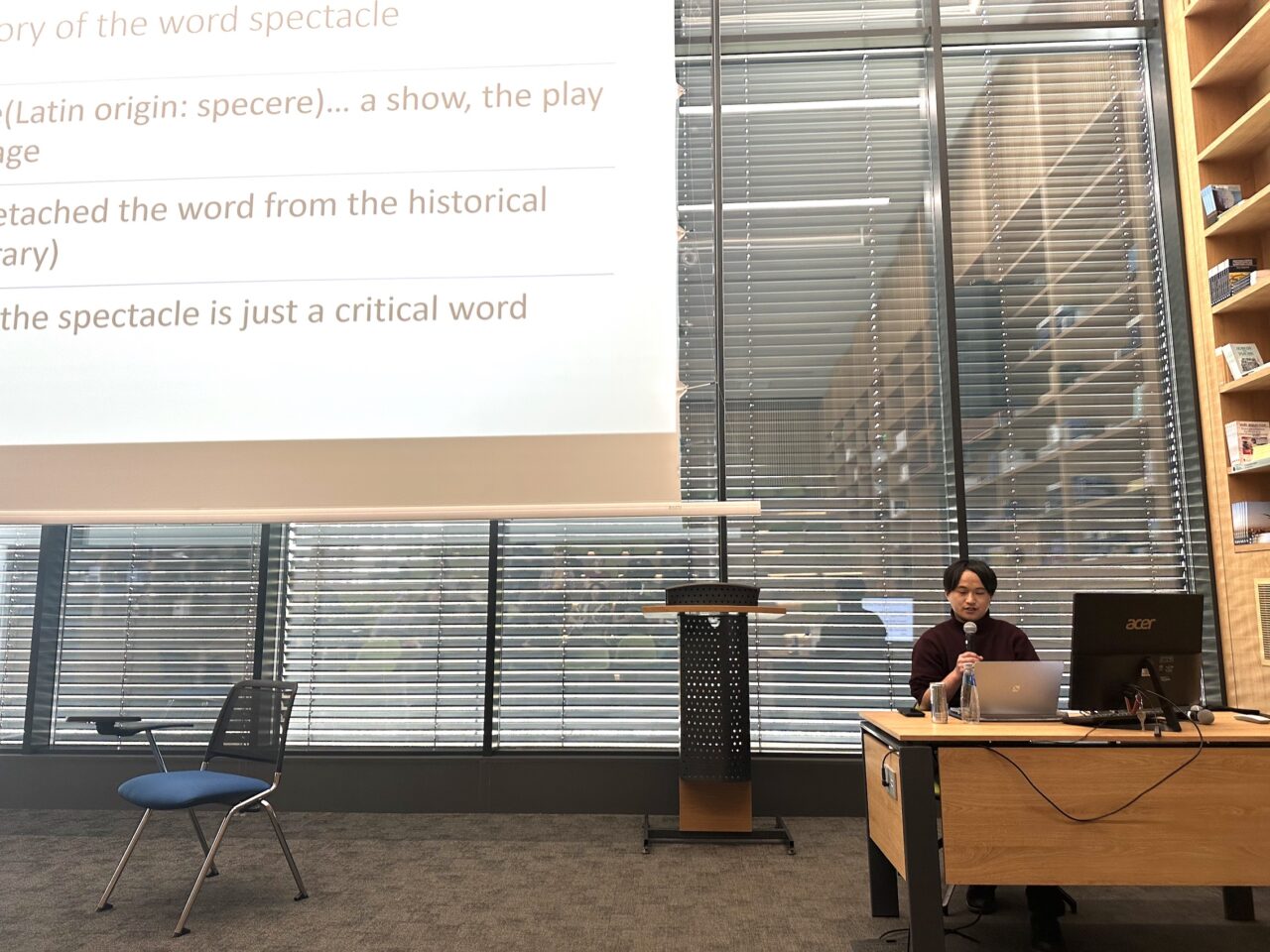
Finally, Professor Hoshino’s presentation, titled “Under Maintenance: An Introduction to Restorative Humanities,” discussed the recent insights he had regarding the need for “maintenance” in the humanities. Drawing parallels between the industrialization of art, which produces exploitative structures, and academic practices, he proposed that humanities need a more specific “technique” of inheritance and renewal, much like the infrastructure of roads, while emphasizing the implications of daily, unnoticed tasks similar to housework. This idea differed from the conventional notion of “conservation.”
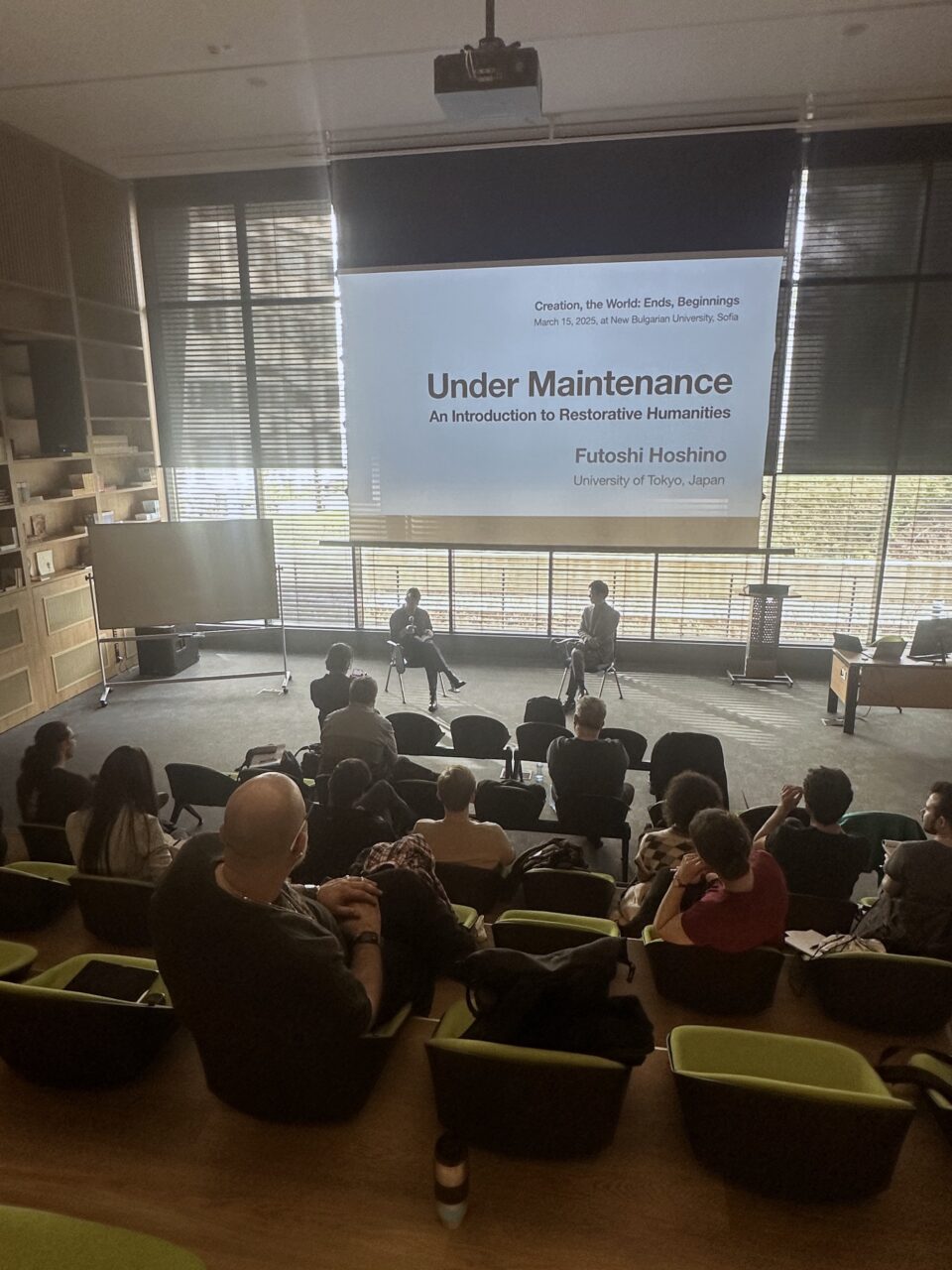
The discussions following each presentation were initiated by Professor Dimitar Vatsov (New Bulgarian University), Professor Tenev, Professor Enyo Stoyanov (Sofia University), and Professor Manchev, and questions from the audience were ongoing throughout. The discussions touched on reflexivity and environmental issues related to the political situation surrounding lies, the power of ideology, the dangers of affirming chaos, the influence of the 1930s and May Revolution, the role of visuality in Nancy’s work, and the need to sincerely rethink the conditions of humanity, among other topics. Notably, during the general discussion, there were numerous questions from the younger members of the audience about specific solutions regarding Hoshino’s critical view on the “slow catastrophe” of daily life, as paraphrased by Professor Manchev.
When there are multiple presenters, time for presentations and interactions with commentators is often limited. However, this event was extraordinarily generous, allowing each presenter a full hour, including the Q&A session. The exchange of ideas, filled with differences and disagreements, was thoroughly enjoyed, and the depth and breadth of the topics were wide-ranging. This event clearly demonstrated that if there were another opportunity, the potential for further development and the continuation of discussions over several days would be possible. It also left a strong impression that it would be beneficial to hear more about the actual problems facing the Sofia participants next time.
I think that the event would be relatively considered a small one, but it was a meaningful program made possible thanks to the support of many individuals across universities and departments, as well as beyond positions. It was a miraculous yet solid organization, certainly linking to the future. I would like to express my gratitude to all those who participated and contributed to the planning of this event.
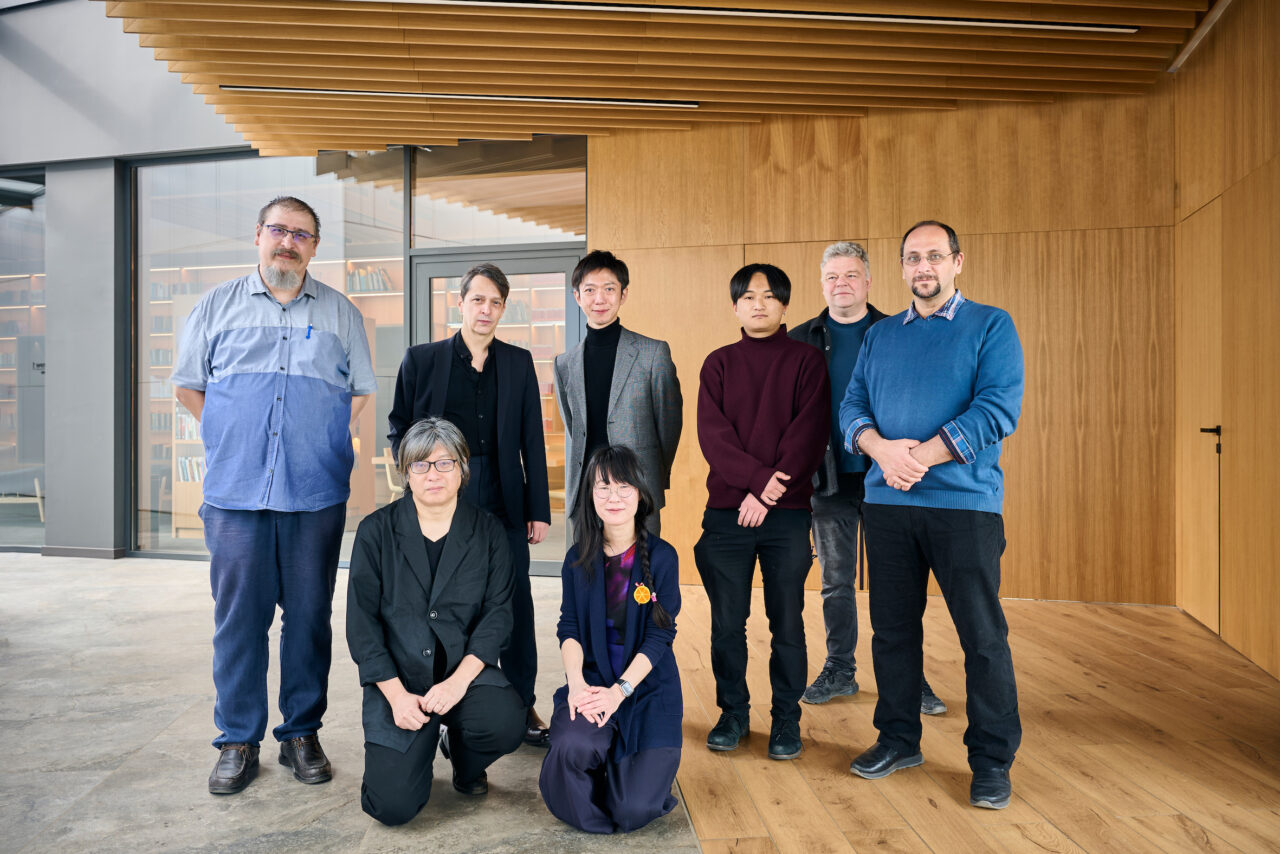
Report by: Hanako Takayama (EAA Lecturer)
Photos by: Stilyan Murdjev, Hanako Takayama








